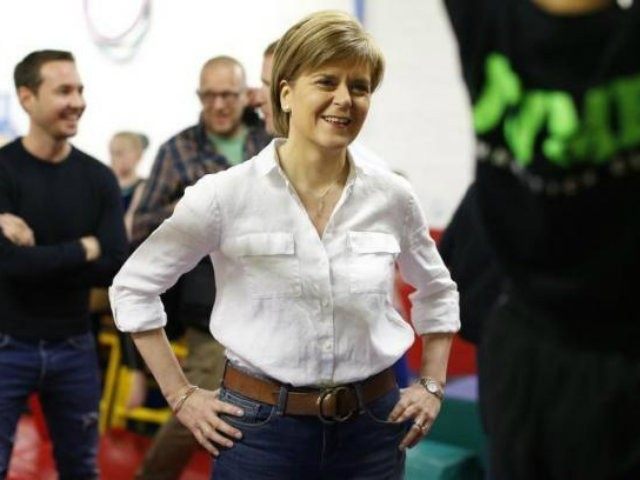GLASGOW, Scotland – Rife with yellow fever, the Scots are on the verge of giving Labour a mighty kicking on May 7th and party leader Jim Murphy knows it.
According to the Scotsman, Labour has drawn up a “rescue package” of vital seats it must win to stand any chance of forming the next Westminster government after Thursday’s general election.
Failing to eat into the Scottish National Party’s 23-
However, as one Labour candidate told the Scotsman, if voter turnout rises to around 75 per cent in Scotland, which is a possibility after last year’s referendum turnout of 84.6 per cent, “then we are all toast and the SNP will win everywhere”.
More likely, as a recent YouGov poll for the Sunday Times predicts, the SNP will win 54 out of Scotland’s 59 seats, with Labour holding just four, the Lib Dems one and the Tories losing their only MP North of the border, Scotland Office minister David Mundell. If that follows the nationalists are on course to become the third largest party at Westminster and theoretically have a major say in how the United Kingdom is governed. But what about the SNP’s record in power – the nationalists have spent eight years at the Holyrood helm – and their future spending plans?
A sizable chunk of the Scottish electorate are falling en masse for SNP leader Nicola Sturgeon’s so-called “progressive” brand of politics and talk of toning down austerity – former prime minister John Major even described (or should I say complimented) her party as “deeply socialist” in a strikingly ill-advised stab.
Ms. Sturgeon’s ‘wee troublemaker’ approach has won her admirers – including many who voted “No” in last September’s referendum but now see her perceived ability to provide a strong voice for Scotland as appealing. But her vexatious patronisation of the Scottish electorate has gone on long enough. In short: Sturgeon is a political deviant… And a bloody effective one at that.
Obsessed with independence – the SNP’s Mhairi Black, standing against shadow foreign secretary Douglas Alexander in Paisley, has reportedly said a bloc of nationalist MPs could “twist the arm” of other parties to secure a second referendum – Ms. Sturgeon’s herd have governed Scotland with cynicism, adopting a moderate approach and implementing centrist policies to persuade Scots they can govern responsibly.
Alex Bell, former head of policy for Alex Salmond, Sturgeon’s predecessor, told the Financia
And ironically, the SNP have even wielded an axe, cutting education spending by 2 per cent in cash terms between 2009-10 and 2013-14, according to a report by Fiscal Affairs Scotland. Meanwhile, as reported by the Financial Times, the Institute of Fiscal Studies (IFS) says that schools expenditure in England under a Tory-led coalition government “rose in real terms between 2010 and 2015”.
Fiscal Affairs Scotland’s report also states that health expenditure increased less in Scotland (seven per cent in cash terms) than it did in England (11 per cent) during the same period. Despite Ms. Sturgeon’s fervent defence of the National Health Service – she has vowed “to protect the NHS” – her government’s record suggests her party gives healthcare little special attention.
The history books will attack Gordon Brown’s legacy as prime minister, but it’s difficult to disagree with his damning verdict of the SNP’s record. Writing in the Scotsman, Mr. Brown said: “Even after eight years in office they take no responsibility for the persistence of poverty”.
Looking to the future, it is as though the electoral needs of the SNP outweigh those of the Scottish people. For example, according to the IFS, there is a “considerable disconnect” between SNP rhetoric on austerity and the party’s stated spending plans for the next five years.
Contradicting Ms. Sturgeon’s claims that her party’s number one priority is “ending austerity”, the IFS said: “They would cut less to start with but the implication of the plans they have spelt out […] is that the period of austerity would be longer than under [the main Westminster parties]”.
The report continued: “The SNP’s stated plans […] imply a bigger cut to spending by 2019-20 than Labour’s”.
Ultimately, with the party’s record in government and current manifesto totally at odds with the leadership’s spin, the SNP is conning the people of Scotland and permanently damaging the Union.

COMMENTS
Please let us know if you're having issues with commenting.